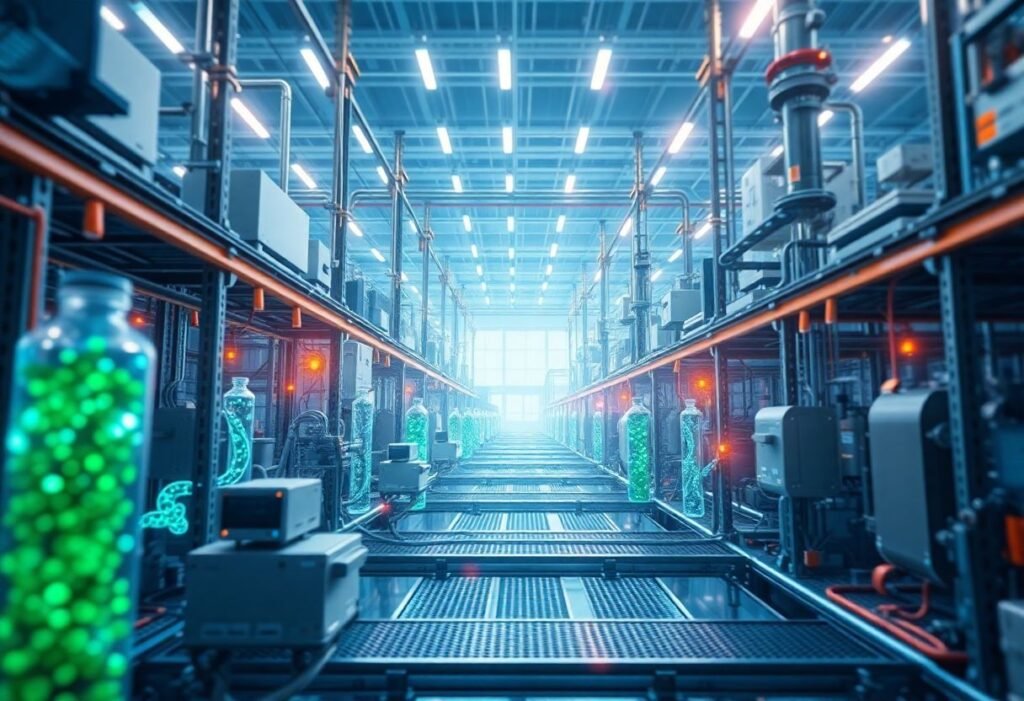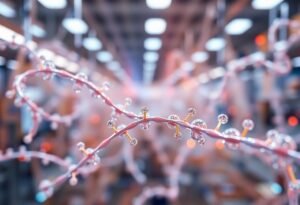The future of biotechnology in industrial manufacturing is poised for transformation driven by innovation and technological advances. As industries evolve, the integration of biotechnological processes is set to redefine production efficiency, sustainability, and product quality. This article explores the promising avenues where biotechnology and innovation intersect, reshaping how manufacturing operates.
Harnessing Enzymes for Enhanced Efficiency
Biotechnology in industrial manufacturing increasingly utilizes enzymes to improve production processes. These biological catalysts can significantly reduce energy consumption and increase the speed of chemical reactions. For instance, enzyme-based processes are becoming prevalent in the production of biofuels, textiles, and bioplastics. This not only helps in achieving faster production times but also minimizes environmental impact, leading to a more sustainable manufacturing landscape.
Biotechnology and Sustainability Initiatives
The connection between biotechnology and sustainability is at the forefront of industrial innovation. By adopting biophilic manufacturing practices, companies can reduce waste and energy consumption. Innovations such as bioremediation, which employs microorganisms to clean contaminated environments, showcase the potential of biotechnology in creating sustainable industrial processes. Additionally, sustainable biotechnological practices often lead to the creation of biodegradable materials, further contributing to a circular economy.
Advancements in Genetic Engineering
Recent advancements in genetic engineering hold immense promise for industrial manufacturing. Through techniques such as CRISPR, manufacturers can genetically modify organisms to enhance yield and efficiency. For example, genetically engineered microorganisms can be designed to produce high-value compounds at lower costs, optimizing production processes across various industries while maintaining quality and consistency.
Integrating Biotechnology with Automation
As automation continues to revolutionize manufacturing, the integration of biotechnology with robotics provides exciting possibilities. Automated systems can monitor biotechnological processes in real-time, ensuring optimal conditions for production and reducing human error. This convergence not only improves efficiency but also enhances the scalability of biotechnological applications, making it easier for manufacturers to adapt to changing market demands.
The Role of AI in Biotechnological Innovations
The fusion of artificial intelligence and biotechnology is paving the way for new innovations in industrial manufacturing. AI algorithms can analyze vast amounts of data to identify patterns and optimize biotechnological processes. This allows manufacturers to predict outcomes more accurately, leading to enhanced product development cycles and reduced time-to-market for innovative bioproducts.
Regulatory Considerations in Biotechnology Adoption
As biotechnology becomes increasingly integrated into industrial manufacturing, understanding regulatory frameworks is crucial. Businesses must navigate complex regulations governing the use of genetically modified organisms and biotechnological processes. Staying informed about these regulations ensures compliance and fosters innovation, allowing companies to leverage biotechnological advancements while adhering to safety standards.
Disclaimer: The content provided in this article is for informational purposes only and should not be considered as professional or expert advice.





















